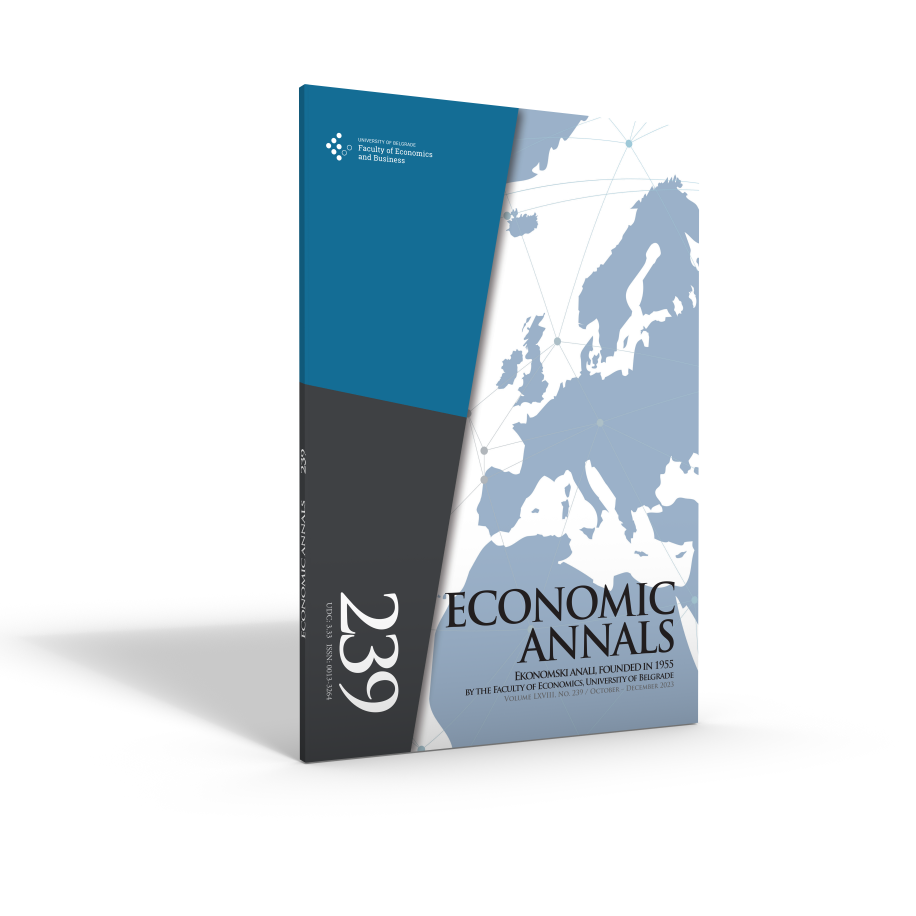ANALYSIS OF THE IMPACT OF FDI ON THE HOST COUNTRY MARKET CONCENTRATION: EVIDENCE FROM THE SERBIAN BANKING MARKET
##plugins.themes.bootstrap3.article.main##
##plugins.themes.bootstrap3.article.sidebar##
Marija Radulović
Milan Kostić
Milan Kostić
Abstract
Foreign direct investment (FDI) is an important factor in economic development. The impact of FDI on the host country is achieved by transferring capital, knowledge, technology, organisational structure, and strategies. In addition, FDI affects the condition of competition in host country markets, which is the focus of this study. Our purpose is to estimate the impact of FDI on market concentration and competition conditions using the example of the Serbian banking market. The autoregressive distributed lag (ARDL) approach was used to test the long- and short-run relationship between market concentration, FDI, and the number of banks from Q4 2004 to Q2 2019. The results suggest that increases in FDI volume reduce the Serbian banking market’s concentration level in the long and short run. On the other hand, a decrease in the number of banks leads to an increase in market concentration in the long and short run. Our study’s recommendation for competition authorities is to pay more attention to the concentration of undertakings, especially in financial sectors such as the banking market. The process of concentration of undertakings carries a high risk of violating competition conditions, and authorities need to mitigate this risk.
##plugins.themes.bootstrap3.article.details##
Keywords
FDI, market concentration, banking
JEL Classification
L13, L41, L80, G21
Issue
Section
Articles
How to Cite
Radulović, M., & Kostić, M. (2023). ANALYSIS OF THE IMPACT OF FDI ON THE HOST COUNTRY MARKET CONCENTRATION: EVIDENCE FROM THE SERBIAN BANKING MARKET. Economic Annals, 68(239), 59-81. https://doi.org/10.2298/EKA2339059R
How to Cite
Radulović, M., & Kostić, M. (2023). ANALYSIS OF THE IMPACT OF FDI ON THE HOST COUNTRY MARKET CONCENTRATION: EVIDENCE FROM THE SERBIAN BANKING MARKET. Economic Annals, 68(239), 59-81. https://doi.org/10.2298/EKA2339059R

